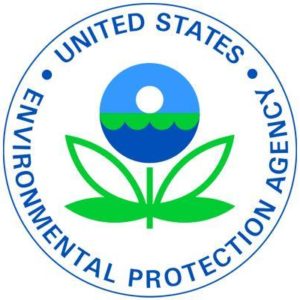The U.S. Supreme Court delivered a strong message to Congress regarding regulating the nation’s environmental policy:
Do your job.
It’s a particularly important message in Pennsylvania, where the Biden administration’s expansive plans to regulate — and perhaps shut down — fossil fuel energy plants would have a significant effect on the state’s economy.
In West Virginia v Environmental Protection Agency, the Court ruled 6-3 that the Clean Air Act does not give the EPA broad authority to regulate greenhouse gas emissions from power plants on its own.
“Capping carbon dioxide emissions at a level that will force a nationwide transition away from the use of coal to generate electricity may be a sensible ‘solution to the crisis of the day,’” Chief Justice John Roberts wrote in the opinion. “It is not plausible that Congress gave EPA the authority to adopt on its own such a regulatory scheme.
“The agency must point to clear congressional authorization for the power it claims,” Roberts added.
Supporters of the Obama-era policy argue that the threat of climate change outweighs the limits on government power set by the court and they raised questions as to whether an elected Congress is capable of regulating such an important issue.
“Members of Congress often don’t know enough—and know they don’t know enough—to regulate sensibly on an issue,” Justice Elena Kagan wrote in her dissent.
“The decades-long fight to protect citizens from corporate polluters is being wiped out by these MAGA extremist justices,” said Senate Majority Leader Chuck Schumer (D-N.Y.) “It’s all the more imperative that we soon pass meaningful legislation to fight the climate crisis.”
Court supporters noted the irony of Schumer’s call for legislation, which was the conclusion of the court majority as well.
“It was incredibly risky for the federal government to try to turn our power-generating system inside out,” says Sam Kazman with the Competitive Enterprise Institute. “Today the Supreme Court ruled that if the government is going to do so, then it must be clearly authorized by congressional laws rather than by the dictates of unelected bureaucrats.”
Myron Ebell, Director of CEI’s Center for Energy and Environment, said the court’s ruling walks back its 2007 decision in Massachusetts v EPA.
“The Massachusetts case held that the EPA could use the Clean Air Act to regulate greenhouse gas emissions,” says Ebell. “The Court has now invoked the major questions doctrine and recognized that Congress designed the Clean Air Act to regulate air pollutants and not carbon dioxide emissions from burning coal, natural gas, and oil.
“The Biden administration must now get explicit authorization from Congress if it wants to continue to enact major climate policies that will further raise energy prices,” Ebell added.
President Joe Biden has directed his legal team to work with the Department of Justice and affected agencies to review this decision and find ways that the administration can continue protecting Americans from what he calls harmful pollution that causes climate change.
“We cannot and will not ignore the danger to public health and existential threat the climate crisis poses,” said Biden in a press release Thursday. “The science confirms what we all see with our own eyes – the wildfires, droughts, extreme heat, and intense storms are endangering our lives and livelihoods.”
Former President Barack Obama also weighed in, saying no challenge poses a greater threat to our future than a changing climate.
“Every day, we’re feeling the impact of climate change, and today’s Supreme Court decision is a major step backward,” Obama tweeted.
But it was Obama and his team that pushed through a regulatory scheme, rather than passing legislation limiting greenhouse gas emissions, that led to today’s ruling.
At the state level, Republican gubernatorial candidate state Sen. Doug Mastriano is running as an unapologetic ally of the state’s energy sector. He has pledged, for example, to pull the state out of the Regional Greenhouse Gas Initiative (RGGI) cap-and-trade scheme on his first day in office. His opponent, Democratic nominee Josh Shapiro, has expressed doubts about RGGI but has kept his stance intentionally vague.
Environmental groups have denounced the Supreme Court’s ruling, calling this a dangerous decision that gives “coal executives and far-right politicians exactly what they asked for” by frustrating EPA’s efforts to protect communities and families.
“For years, EPA has had the clear authority and duty under the Clean Air Act to effectively reduce climate-disrupting carbon dioxide pollution from fossil fuel-burning power plants, in line with the action the public and science demands,” said Andres Restrepo, senior attorney for the Sierra Club’s Environmental Law Program. “But Thursday’s decision accommodates the powerful instead of the people by seriously narrowing that authority.”
But energy sector advocates say their industry still isn’t out of the EPA woods of overregulation.
“While this decision clearly reins in EPA authority to craft carbon rules that force a remaking of the nation’s electricity mix, the agency has already signaled it’s going to use every other tool at its disposal to accelerate coal plant closures and pursue its agenda,” one industry insider told InsideSources. “If you’re concerned about grid reliability and electricity affordability, Congress needs to step up and ensure it is steering domestic energy policy, not the regulators at EPA.”
Still, some conservative groups are taking the win.
“This is a win for the climate and constitutional democracy,” says Drew Bond, president of Conservative Coalition for Climate (C3) Solutions. “Any serious person knows that innovation, not over-regulation, is the solution to reducing global greenhouse gas emissions.”
Instead of looking to regulators to impose top-down mandates, Bond says activists on all sides should ask legislators to pass laws that encourage bottom-up solutions.
“Our Climate and Freedom Agenda highlights dozens of actions Congress can take to meaningfully reduce greenhouse gas emissions through innovation and by expanding economic freedom,” says Bond about C3 Solutions. “Let’s put our focus there. American innovation won’t disappoint.”
Please follow DVJournal on social media: Twitter@DVJournal or Facebook.com/DelawareValleyJournal

